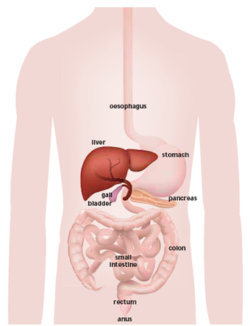
Irritable Bowel Syndrome (IBS) is a common disorder affecting the large intestine, leading to symptoms like cramping, abdominal pain, bloating, gas, diarrhea, and constipation. While the exact cause of IBS remains unclear, treatments focus on symptom relief. A multifaceted approach including diet, lifestyle changes, and medications can help manage the condition and improve quality of life.
Medications for IBS
The choice of medication for IBS depends on the predominant symptoms experienced by the individual. Here's an overview of the types of medications commonly used to treat IBS:
- Fiber Supplements: For those with IBS with predominant constipation (IBS-C), fiber supplements like psyllium (Metamucil) can help improve bowel regularity. It's important to increase fiber intake gradually to minimize gas and bloating.
- Laxatives: Also aimed at relieving constipation, over-the-counter laxatives can be effective. They come in various forms, including bulk-forming and osmotic types, but should be used under a healthcare provider's guidance to avoid dependency.
- Antidiarrheal Medications: For IBS with predominant diarrhea (IBS-D), medications like loperamide (Imodium) can reduce diarrhea by slowing the movement of the stool through the intestines. It's crucial, however, to not overuse these medications, as they can lead to constipation.
- Antispasmodics: These medications help reduce abdominal cramping and pain by relaxing the muscles in the intestines. Examples include dicyclomine (Bentyl) and hyoscine (Buscopan).
- Tricyclic Antidepressants: Low-dose antidepressants can inhibit the activity of neurons that control the intestines, helping relieve pain and cramping. They can be particularly effective for IBS-D due to their side effect of constipation.
- SSRIs: For those with IBS-C, selective serotonin reuptake inhibitors (SSRIs), another type of antidepressant, can help by increasing stool movement through the intestines and also addressing the anxiety or depression that can accompany IBS.
- Pain Medications: For severe IBS pain not relieved by other treatments, a doctor may prescribe a pain medication that acts on the nervous system to reduce pain signals in the gut.
- IBS-specific Medications: There are also medications specifically approved for treating IBS, such as alosetron (Lotronex) for severe IBS-D in women and lubiprostone (Amitiza) for IBS-C.
Diet and Lifestyle Changes for Managing IBS
A well-balanced diet plays a crucial role in managing IBS symptoms effectively. Individuals suffering from IBS often find relief by identifying and avoiding trigger foods that exacerbate symptoms. Common triggers include dairy products, gluten, high-gas foods like beans and certain vegetables, and caffeinated or alcoholic beverages. Implementing a low-FODMAP diet, which eliminates foods high in certain fermentable carbohydrates, has been shown to significantly reduce symptoms for many. Additionally, regular physical activity and stress-reduction techniques, such as mindfulness and yoga, can also play a valuable role in alleviating IBS symptoms and improving overall well-being.
Implementing an Effective IBS Management Plan
Creating a personalized IBS management plan requires careful consideration of an individual's specific symptoms and lifestyle. Working closely with healthcare professionals, patients can develop a comprehensive strategy that combines dietary adjustments, medication, and behavioral therapies. This tailored approach not only aims to alleviate symptoms but also to address the psychological impact of living with a chronic condition. Regular follow-ups and adjustments to the plan are essential, as IBS symptoms can change over time or in response to various stressors. Additionally, maintaining open communication with healthcare providers ensures that any new treatments or changes in condition are promptly addressed, maximizing the effectiveness of the management plan.
Conclusion
Treating IBS often requires a personalized approach, combining dietary and lifestyle modifications with medication based on an individual's specific symptoms and triggers. Regular follow-up with a healthcare provider is essential to adjust the treatment plan as needed and to explore new options if current strategies do not provide sufficient relief. With effective management, individuals with IBS can lead a normal, active life, significantly reducing the impact of the syndrome on their daily activities.
